The Best Way to Find What You're Looking for in Historical Newspapers
3-4 minute read
By The Findmypast Team | March 16, 2018
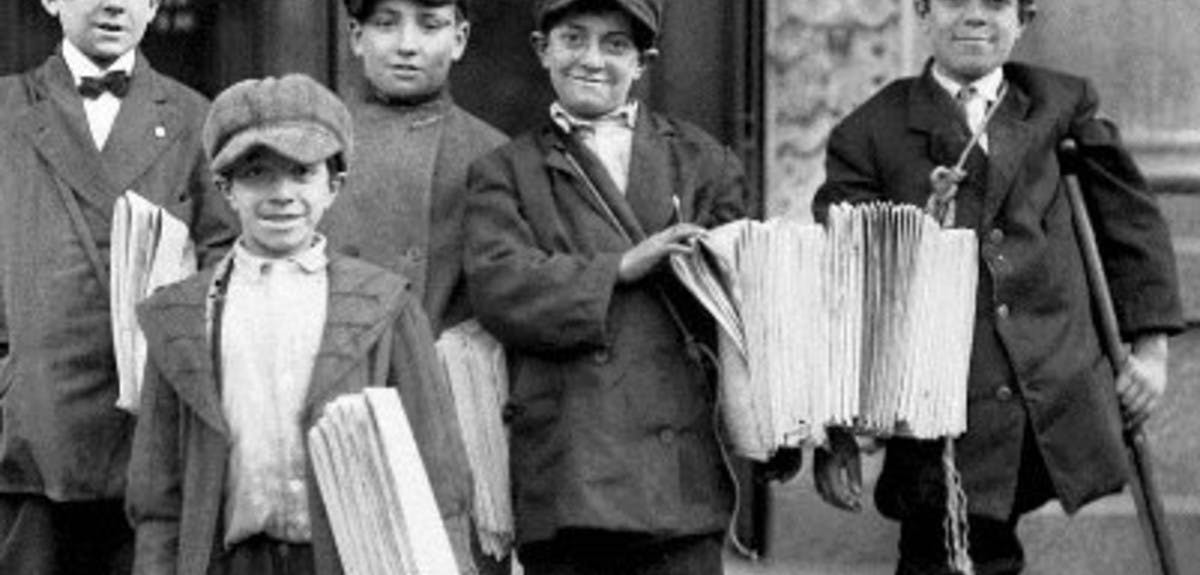
Find what you're looking, and understand what you're looking at, by familiarising yourself with the vocabulary of the time
The English language is ever-changing. If you were to travel more than two centuries or so into the past, it's highly unlikely you'd be able to understand a word anyone said, such is the speed at which it evolves and adapts. This presents a challenge when researching newspapers from the 18
th and 19th centuries. Therefore, searching using spellings and phrases of the time is a must if you want to stand any chance of finding what you're looking for.
Special Substitutes
When searching for a word like 'assess', it might also be worth trying 'affess' and variations thereof. That's because in the 18th century, people hadn't yet made their minds up on the use of the letters f and s, as demonstrated below on the cover of a 1720 edition of the
Newcastle Courant. This practise didn't die out until well into the 19th century, so if you're searching for the naval vessel on which your ancestor served, for example, you're probably looking for 'the naval veffel on which your anceftor ferv'd'.
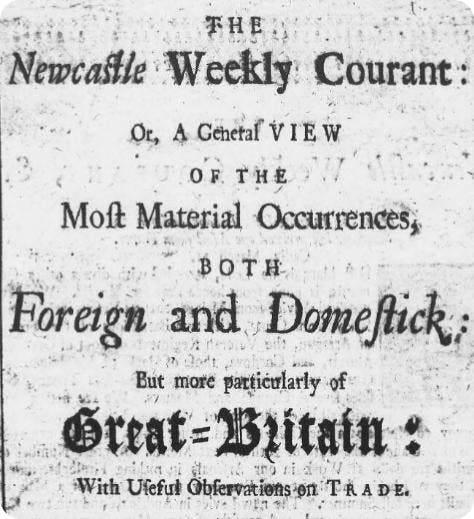
Image © THE BRITISH LIBRARY BOARD. ALL RIGHTS RESERVED.
Archaic Spellings
It's always worth remembering, too, that spelling changes along with language. When
searching British and Irish newspapers, take the differences in modern spelling into account, but also try a variation on them. In our research, variations on modern spelling that we see frequently - particularly in 18th century newspapers - include 'compleat', 'publick', 'Catholick' and 'negociations'. Words like these - with a hard c, a longer e or a soft t - are often adapted in this way.
Another variation is to replace the final 'e' in a word with an apostrophe, for example 'conceal'd', 'assail'd', 'complain'd'. This won't, however, be the case with words where the 'e' is shorter, such as 'repeated', 'assaulted' or 'taken'.

Image © THE BRITISH LIBRARY BOARD. ALL RIGHTS RESERVED.
Wildcards can help you to get around these spelling oddities when searching. Find out more about those
here.

Words and Phrases of Note
Some of the archaic words and phrases we've come across in our newspaper research.
General
Animadversion = Criticism or censure
Betimes = In good time or early
Calumnious = Slanderous or defamatory
Chidden = The past participle of 'chide'
Did away with themselves = Committed suicide
Leagues =One nautical league is around 3.4 miles and they are often referenced in accounts of naval encounters
Lucubrations = A pedantic and overelaborate piece of writing (credit to Merriam Webster for that one)
Puncheon = A barrel that contained alcohol
Scurrilities = Abusive or vulgar comments, accusations or writings
Wipe = Pocket handkerchief
Military and Naval
Bark= 18th century English spelling of 'barque'
Man of War = A large warship, the term was used from the 16th century to the 19th
The war = The First World War. Of course, it didn't become the First World War until the second had taken place!
Medical
Apothecary = Predecessors to modern pharmacists
Chirurgeon = Surgeon
Farinaceous = To have a mealy surface - often used when describing skin complaints
Humours = Liquids believed to help maintain health
Imbecile = An unpleasant catch-all term for people with severe mental health problems or disabilities
Slang, Including Criminal Terms
Bilker = Embezzler
Buzzmen = Pickpockets
Pannymen = Housebreakers
Shake some dummies = Pick some pockets
Shop-bouncers = Shop lifters
Soup-meagre = An 18th century meat-free soup, also used as an insulting term for the French, as seen in the below anecdote
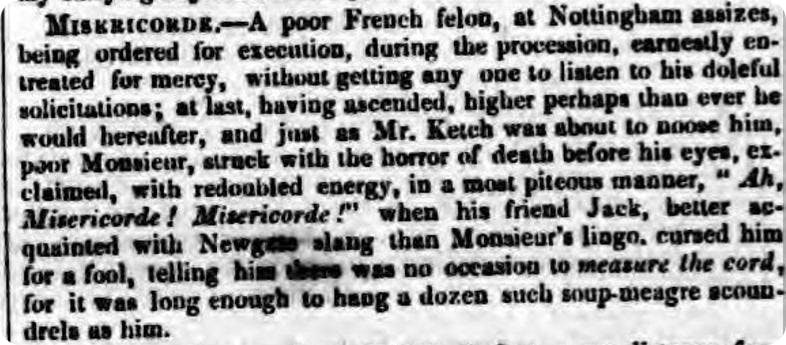
Image © THE BRITISH LIBRARY BOARD. ALL RIGHTS RESERVED.
Swell = A rich man
Traps = Police officers
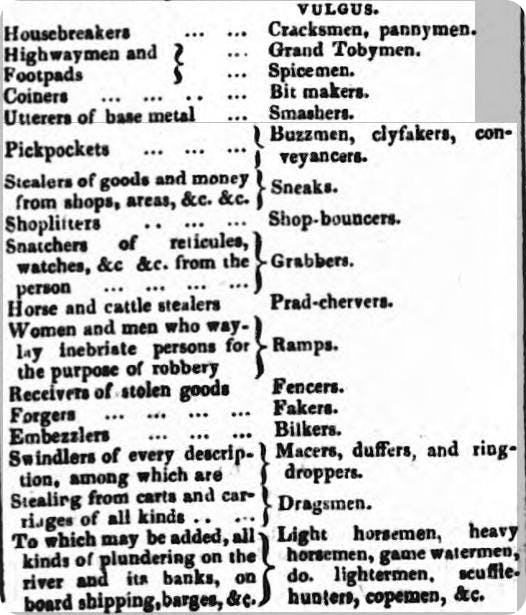
Image © THE BRITISH LIBRARY BOARD. ALL RIGHTS RESERVED.
By no means comprehensive, this list is intended to highlight a few archaic phrases and words we're particularly fond of, but also to introduce you to the idea of adapting your search terms to reflect the language of the era you're researching. Not finding what your looking for in the newspapers? Head to Google and see if there's an old-fashioned replacement for the search terms you're using.

Related articles recommended for you

More footballers in the family? Jack Grealish’s family tree
Discoveries
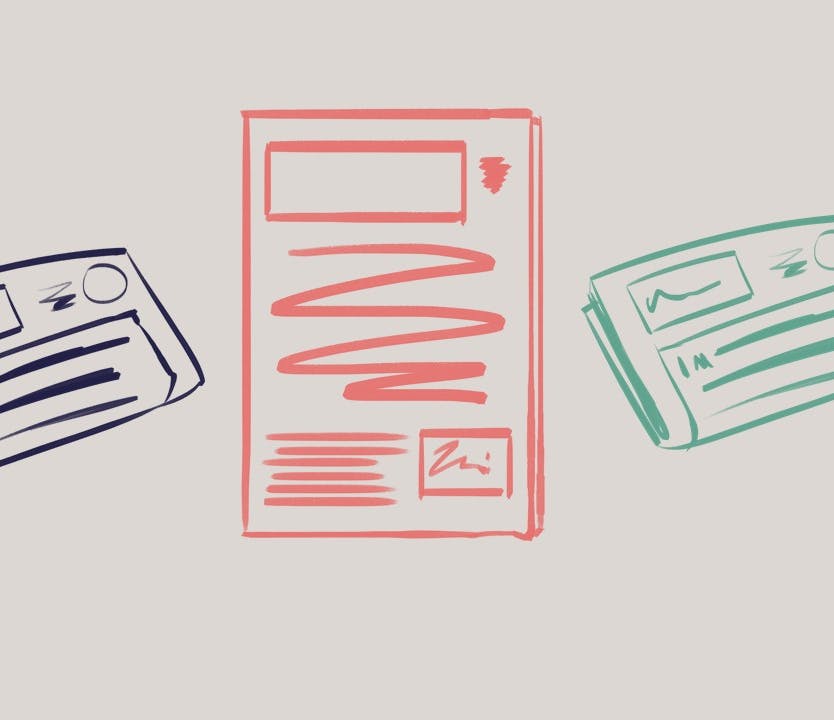
15 top tips for searching Findmypast's British & Irish newspaper archive
Help Hub
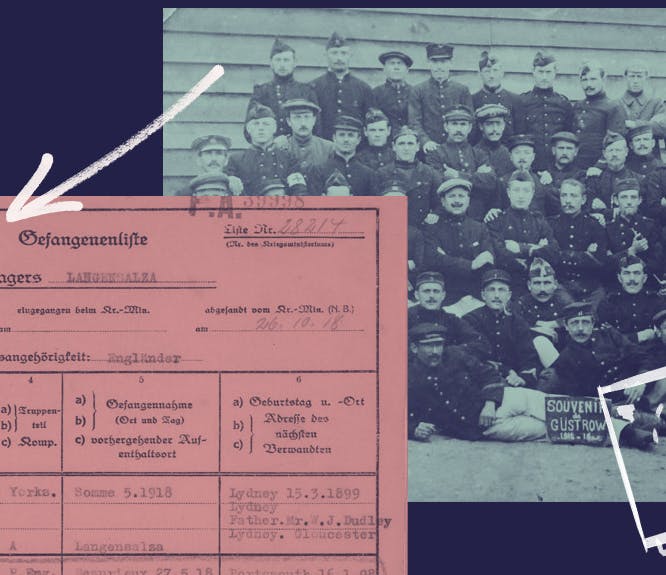
A complete guide to our World War 1 Prisoner of War records
History Hub

